‘Sunspel survived the war; we will survive this’
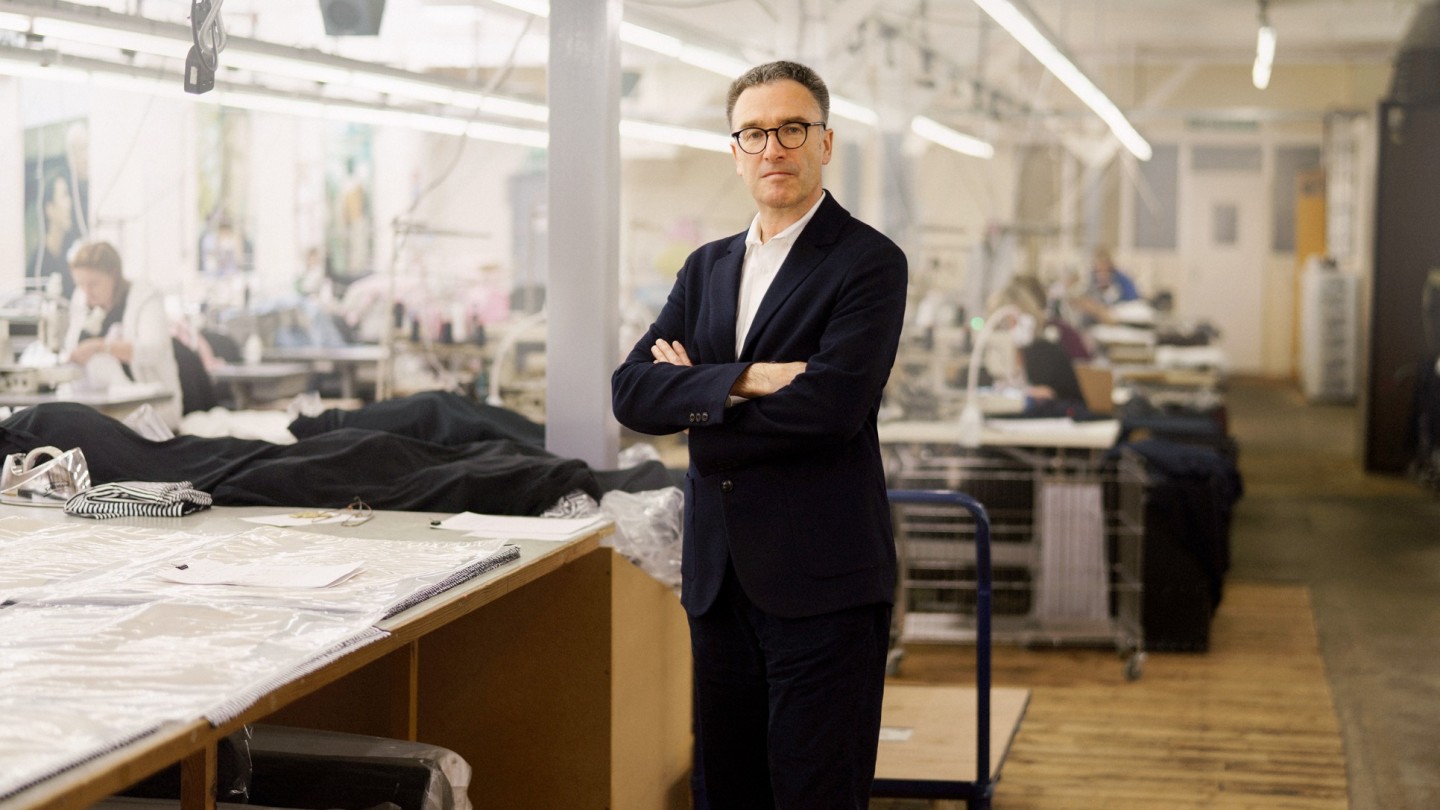
Simply sign up to the Fashion myFT Digest -- delivered directly to your inbox.
When Sunspel CEO Nicholas Brooke addressed his factory workers as the UK entered coronavirus lockdown in March, his speech dug deep into the 160‑year heritage of the British luxury underwear and casualwear brand. “Although in our lives we have never been through anything like this,” he told the 30-strong team of women, “Sunspel has been through two world wars. It has been through the Great Depression. Somehow we got through those. And we will get through this.”
For Brooke, the speech solidified the reasons why the company was worth saving in the first place. When he took the helm 15 years ago, Brooke was trying to move away from a career as a barrister. “I was looking for something creative,” he says. The much loved but ailing underwear brand was owned by 81-year-old Peter Hill, his wife’s aunt’s companion. “I felt there was a great opportunity,” he says. Together with then business partner Dominic Hazlehurst, he made a bid. His mission? “To save the brand.”
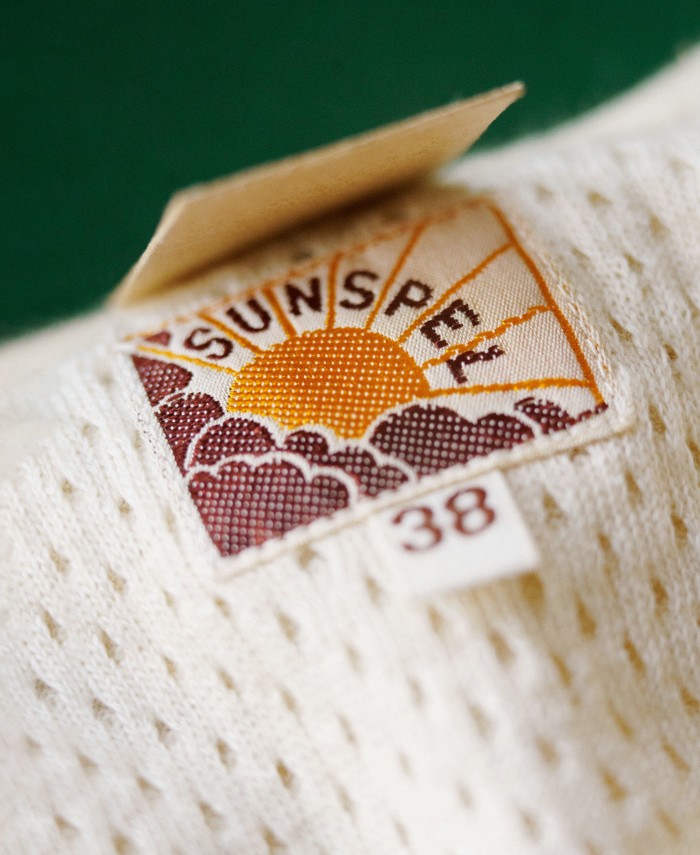
Sunspel, founded as an underwear and textile company in 1860, has already had to shift and adapt to changing circumstances. The Great Depression of 1929 prompted the business to move from its big factory in Nottingham, shipping a wide range of garments and textiles globally, to a smaller operation in Long Eaton, where it could focus exclusively on the domestic market and premium underwear in the finest Sea Island cotton. The move “was purely to survive”. Sunspel stabilised, then war broke out and the company had to change tack again, “producing utility underwear for the RAF, and long johns under the rationing stamp, CC41”, says Brooke. It went on to introduce the boxer short to Britain in 1947 and, in the 1980s, it sent teenage hearts thumping in the wake of a Levi’s TV ad featuring Nick Kamen in a launderette, stripping down to his pristine white Sunspel undies.
Despite the quality fabrics – recognised by luxury wholesale clients such as Margaret Howell, Paul Smith, Thom Browne and Japanese stores including Isetan, Beams and United Arrows – the brand was “pretty much bankrupt” when Brooke took over. “It was so old-fashioned,” he says. “There were no computers, just four ladies putting things into ledgers. Nothing had changed since the 1970s… But it had something that very few brands have: an extraordinary history and an archive of garments going back to the 1930s. Even now, there’s a lady in the factory who’s worked there for more than 50 years. It was an inspirational place that felt unique.”
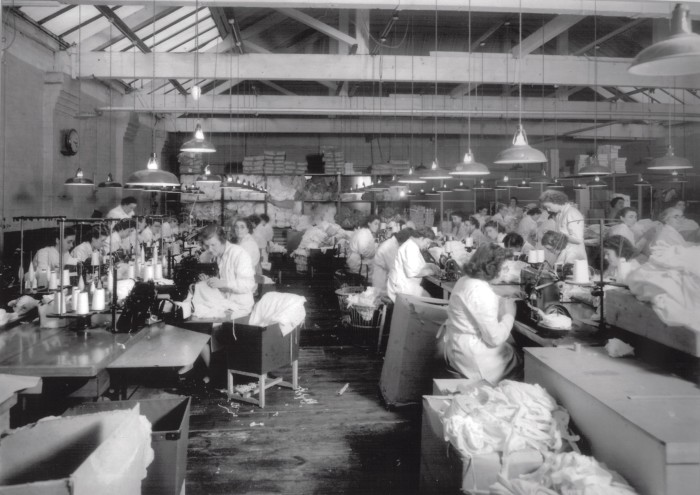
Brooke’s vision pierces to the heart of the company’s DNA: “Taking its values of quality, developing unique fabrics, making products designed to last – and expanding upon those to create a brand around luxury basics.”
Brooke bought his first Sunspel boxers aged 13 – “the first piece of clothing that I spent my own money on”. For him, the brand’s value is in personal associations and the connections those can bring. “Success shouldn’t be about maximising profit. It should be about creating enough profit that you can reinvest in the business and people. Our community is our business, and the people who work in the business, and if they feel a part of what they create, then customers become loyal and love our product not just because of what it is, but because of those values.”
To this end, Brooke has kept the Long Eaton factory – and its idiosyncratic but effective manufacturing methods – as it always has been. “We are the only UK brand that makes our own T-shirts [including five plain white styles, each with a subtly different round neck] in our own factory in the UK,” he says. “Most factories making T-shirts measure themselves on volume, speed and efficiency, so anything that slows that down, like our jersey that’s slightly awkward to work with, they won’t use. We do. It’s the people – their craft and the care that goes into pieces – that make the difference. We are continually training new people, and they are nearly always relations of people who work in the factory already – somebody’s niece or daughter or the daughter of a friend. It has this family feel.”
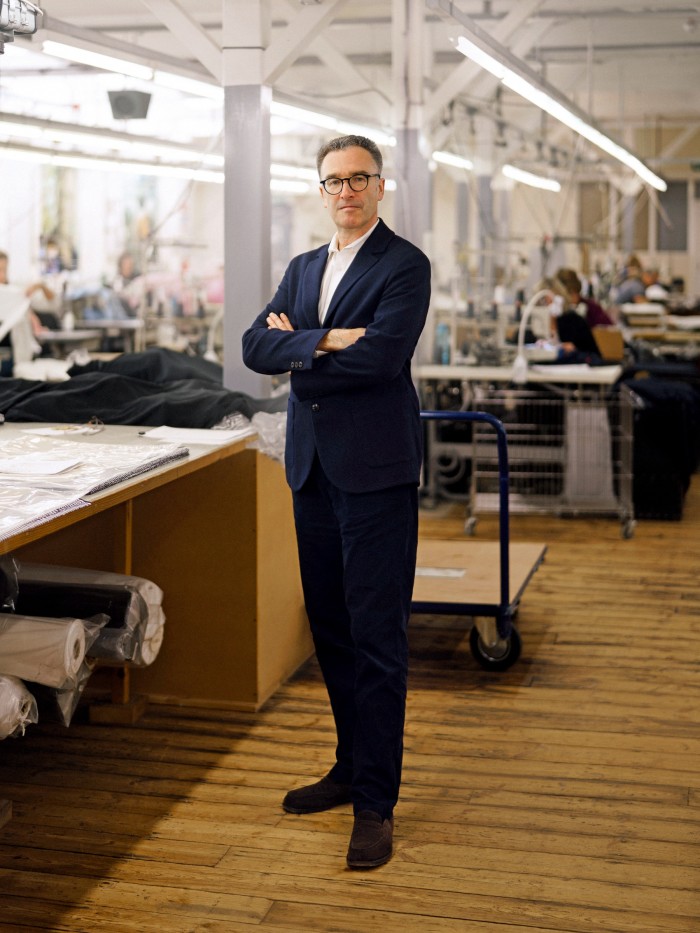
Brooke’s production strategy, however, has shifted from wholesale (he still delivers to a few select clients) to the own-brand label. He has expanded this from underwear and T-shirts (currently making up 30 per cent of production) to incorporate a broader range of smart-casual daywear classics, mostly in neutral shades. “The philosophy has been: can we do that as well as we do our T-shirt?” he says. Where possible, “we look to work with British makers – we go to Scotland for cashmere and lambswool, to Northampton for shoes, and we have our belts made in Leicestershire. The fact that we have a factory remains incredibly important; it’s a way of bench-marking ourselves or other factories against what we do.”
Regular collaborations shake up collections – next up are bright pieces with artist John Booth, who has interpreted the 1950s logo of the sun breaking through the clouds. “The factory really understood what I wanted to do,” says N.Hoolywood founder Daisuke Obana of the reversible, oversized, untrimmed-edge T-shirts made for its collaboration with Sunspel that launched in March. “The first sample was already close to the final image – even if it was unprecedented in their long history. They would have been much stiffer and lost that street feeling if I had chosen a heavier American cotton; the smooth fabric and beautiful stitching give a sophisticated impression.”
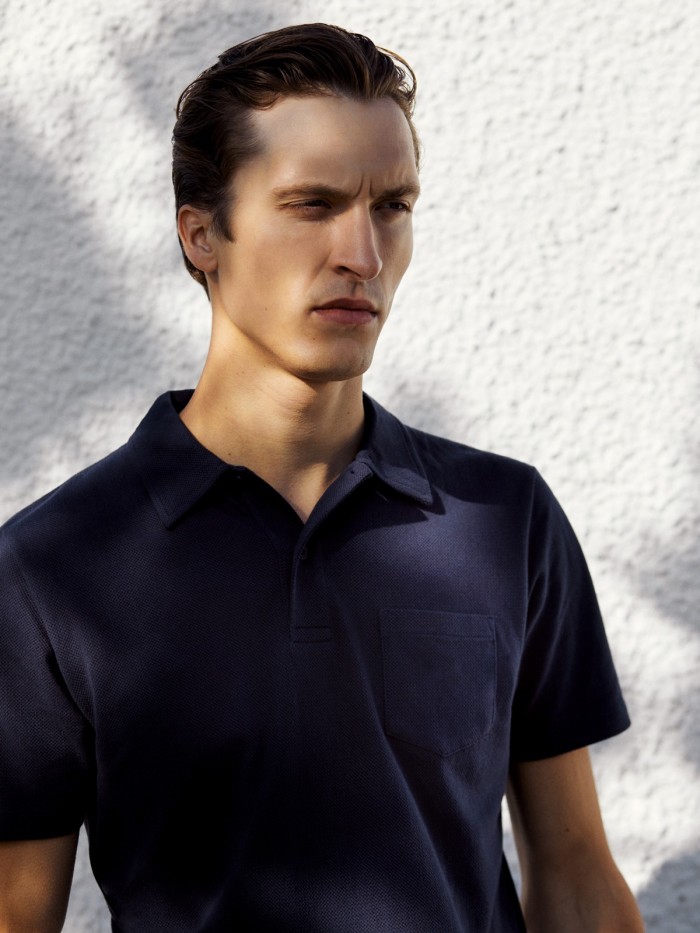
But one of the quickest accelerators to the business came in 2006, when Daniel Craig wore bespoke Riviera polo shirts to play James Bond in Casino Royale. “Older customers remember Sunspel as an underwear brand,” says Brooke, “but many of today’s customers call it a T-shirt or polo shirt brand because of James Bond.” Brooke was also savvy in his decision to appoint Jonathan Anderson to be the brand’s first creative director in 2009. Anderson, then an emerging designer and now creative director of Loewe, gave Sunspel a new edge, and pushed Brooke to consider new retail opportunities: the brand opened its first store in London’s Shoreditch in 2010. “He said to have the confidence to just show T-shirts – and that also changed the perception of the brand.”
Independent Sunspel shops now total six in London, four in Japan and one in New York, with the online store (at least pre-pandemic) accounting for 40 per cent of sales. Last year revenues hit £15.4m, up from £12.4m in 2018 and £10.5m in 2017.
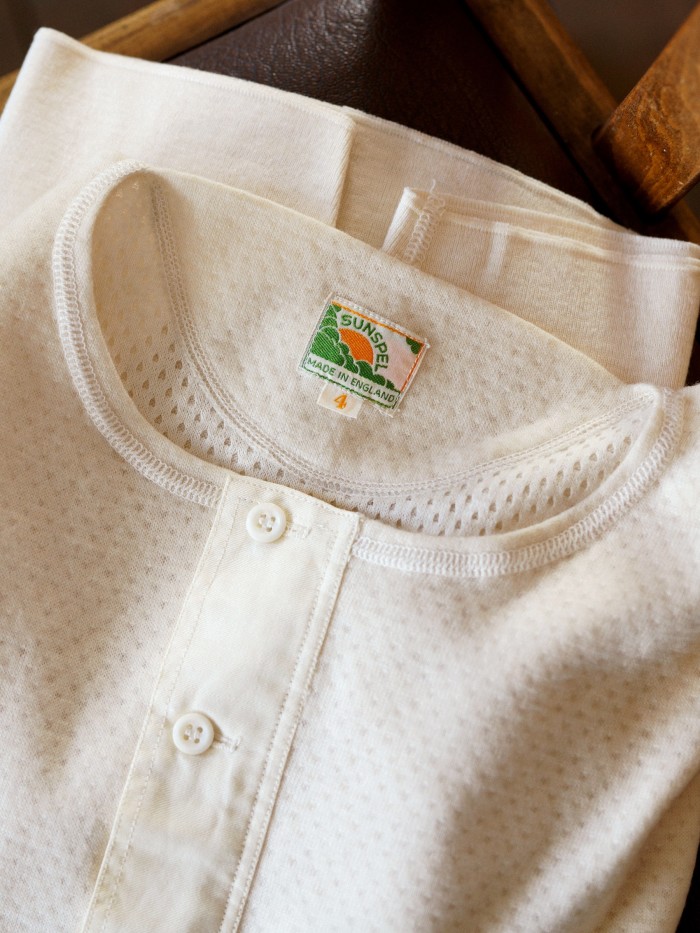
The Covid-19 pandemic is going to be a significant setback. Sunspel sales in Japan were down 50 per cent in the wake of the shutdown, though total online sales were up 32 per cent year on year for March, with loungewear sales up 190 per cent. At the time of writing, the government has stated that it wants factories to remain open if they are able to maintain well-managed social-distancing policies. So, as it stands, the Sunspel factory is continuing to operate. Brooke is present every day, ensuring that stations are 2m apart, there is a one-way flow of people and workers are wearing Sunspel-made face masks created from a pattern downloaded from the internet (“Lily, who made them, said, ‘I didn’t need to do the edge stitch, but it makes them look nicer.’”) Plans for medical masks couldn’t meet requirements for hospital distribution, but instead Sunspel workers are “making bags for the nurses at Queen’s hospital in Nottingham so they can put their uniforms in them at the end of their shifts and then directly into washing machines – rather than taking uniforms out in their houses”.
And the personal relationships at the core of the business have come good. The brand’s Japanese partners, seemingly emerging from the crisis, have paid invoices promptly, instead of taking advantage of the 30-60-day grace period. “You really recognise the value of not doing business for the sake of doing business, but for the sake of long-term partnerships,” says Brooke. Landlords, including a triumvirate of “elderly gentlemen – it’s their pension – have just been fantastic”. One has supported the business with a rent holiday, despite “borrowing against their income from rent, so it is more of a personal sacrifice”.
Despite everything, Brooke remains philosophical: “At this moment, everything feels as bad as it possibly could be, but we will get through this. The world will be different, but it will go back to a semblance of normality. I feel a huge responsibility and personal pressure in terms of the business and the people. I need to preserve the business for that.”
Comments